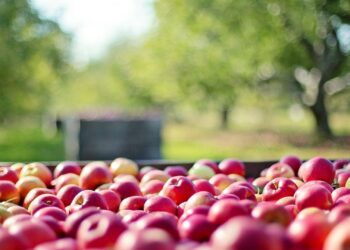Following years of devastating electricity cuts in most parts of the country, farmers who rely solely on electricity were left stranded. Some managed to navigate the challenges; however, others were not so lucky and had to close down their operations.
While the power supply has been somewhat restored, the impact can still be felt, and with the costs of keeping the lights on increasing, farmers and agro-processors are forever in need of some financial relief.
Chief strategy officer at Land Bank, Sydney Soundy, said the entity continues to support farmers through the Agro-Energy Fund to ensure their operations continue without hindrance.
“Since the launch of the Agro-Energy Fund two years ago, a total of 56 applicants have been approved to receive support through the programme. Out of these, 42 applicants have already received their disbursements to the tune of R91 889 802.
“The bank encourages clients to take advantage of available grant support to invest in alternative energy solutions and lower their electricity costs,” he said.
🌱 Tell Us About Your Farm!
We want to provide you with the most valuable, relevant information possible. Please take a few minutes to complete this short, confidential survey about your farming practices and challenges. Your feedback helps us tailor our coverage to better support the future of agriculture across Mzansi.
Reaping the benefits of alternative energy sources
Soundy said the response from grant recipients has been positive, and they have expressed satisfaction with the benefits through access to alternative and renewable energy sources. It has not only offered them backup solutions should they experience electricity supply disruptions, but has also provided them with improved efficiency while saving costs.
“The fund will continue to be distributed despite recent improvements in national power stability. The Agro-Energy Fund is designed not only to address current energy access challenges but also to support the long-term shift toward sustainable and renewable energy in agriculture.
“Currently, 14 of the 56 approved applicants are still awaiting disbursement. In addition to those awaiting disbursement, the fund has a pipeline of 48 new applications that are currently under review, and we encourage farmers to work closely with veterinarians to ensure proper immunisation of their herds,” he explained.
Related stories
- Load shedding: Are we headed for worst-case scenario?
- Farmers, funders unite for true agri transformation in potato industry
- Local is lekker: How SAB brews success with SA farmers
- Millions owed as Matlosana market crisis deepens
Soundy emphasised their commitment to supporting the agricultural sector and encouraged all stakeholders to work together to overcome these challenges.
Why is load reduction still necessary?
Minister of electricity and energy, Dr Kgosientsho Ramokgopa, said that with load shedding now largely gone, having served as a nationally coordinated, rotational power interruption to protect the integrity of the electricity grid, the spotlight shifts to tackling load reduction.
“Load reduction refers to the intentional interruption of electricity in specific areas where the local network becomes overloaded, especially during peak demand periods. This measure is essential to safeguard critical infrastructure, particularly in areas affected by high energy losses or illegal connections that place excessive strain on the isolated networks,” he said.
Limpopo poultry farmer Andrew Nkabinde said while he is yet to apply for the Agro-Energy Fund, he is optimistic that load shedding is a thing of the past.
“It (load shedding) really gave us a tough time. At one point, I had to close for two weeks just to regroup and plan ahead; my chicks were suffering and some died.
“While we are still experiencing load reduction, it is not as severe as the power supply that destroyed many businesses. I am still going to apply for the fund as I have scaled up my operation. So to be on the safe side, I will need to have proper backup in case the load shedding hits back,” Nkabinde said.
READ NEXT: Record maize crop bodes well for food inflation

















